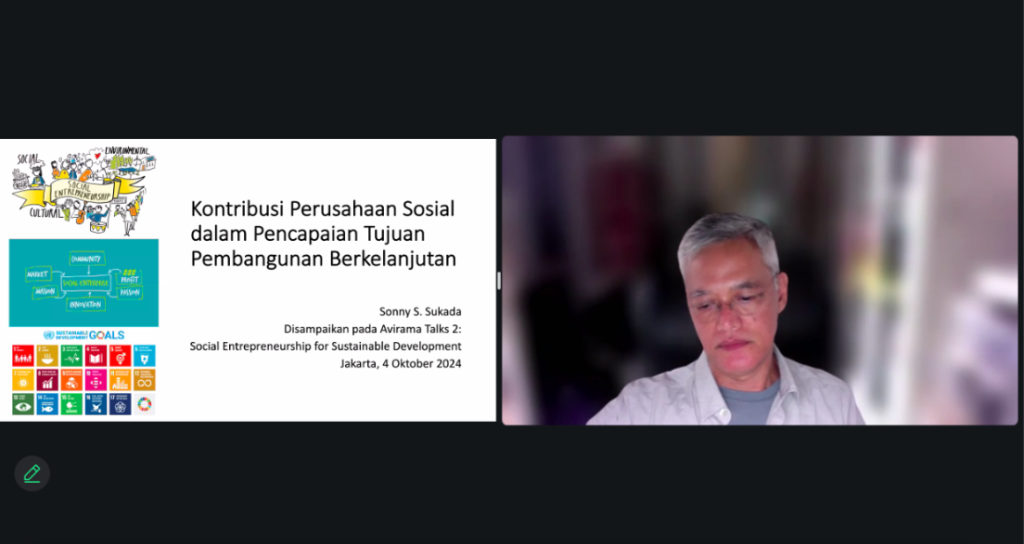Social enterprises are expanding rapidly across the globe. These businesses are unique, blending business operations with social contributions to achieve broader social and environmental goals.
Sonny Sukada, Senior Advisor at Social Investment Indonesia, explained that social enterprises aim to address social or environmental challenges while operating like traditional businesses—generating revenue and employing staff. Unlike typical commercial enterprises, social enterprises prioritize ethical products and services, reinvesting their profits into the communities and causes they support. This model requires a more integrated approach, fostering collaboration among stakeholders from various disciplines.

“There must be local and global collaboration, from economic to environmental efforts and vice versa,” said Sonny during the Avirama Talks on Friday (4/10).
The discussion was part of a series of webinars under the Avirama Nawasena Award, an award focusing on sustainability (ESG) organized by SBM ITB. It thoroughly examines the growing role of social entrepreneurship in supporting sustainable development.
One example of a successful social enterprise is the FAM Rural program, which supports rural communities by providing market access and capacity-building opportunities. The program aims to highlight the potential of rural areas by offering financial resilience training and collaborative research. FAM Rural has assisted over 650 social enterprises in Indonesia, spanning 23 provinces.
“Social enterprises need ecosystem support—a holistic system where academics, investors, and policymakers collaborate to nurture these new business models,” said Henny Rahmawati Putri, Senior Project Associate at PLUS (Social Enterprise Platform).
Access to capital remains one of the biggest challenges for social enterprises. Many entrepreneurs struggle to secure funding due to their non-asset-based business models or lack of experience with investors.
Angel and impact investors play a crucial role in this ecosystem by providing the necessary capital for growth. However, social entrepreneurs must address the root causes of social issues to create a lasting impact. By tackling these deeper problems, their products and services can become more appealing to consumers eager to support social change.
Saskia P. Tjokro, Director of Advisory at ANGIN, advised social entrepreneurs to align their businesses with the problems they aim to solve.
“If the problem you address is significant, others will want to help,” said Saskia. She added that consumers are more inclined to buy from businesses that address issues that matter to them.
Following the second discussion, SBM ITB will host the next sustainability webinar as part of the Augerah Avirama Nawasena registration process. For more information, visit @aan.sbmitb on Instagram.




